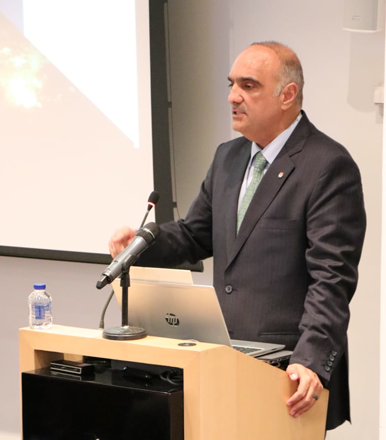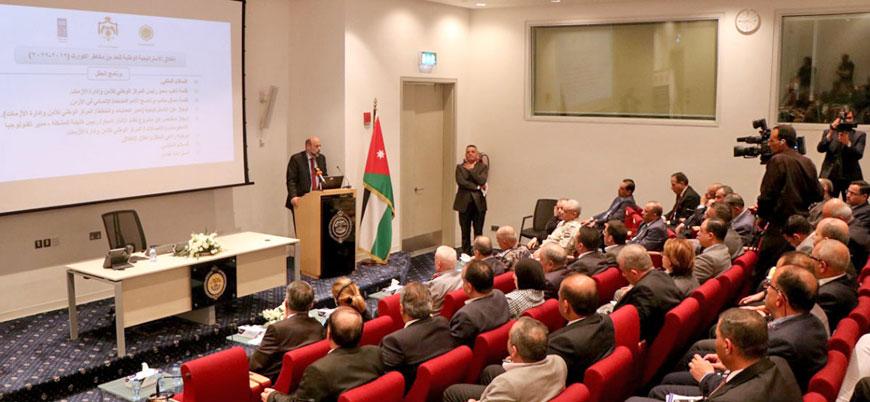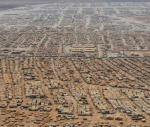You are here
PM launches 2nd edition of National Risk Reduction Strategy
By JT - Oct 16,2022 - Last updated at Oct 16,2022

Prime Minister Bisher Khasawneh at the launch of the Second Edition of National Strategy for Disaster Risk Reduction (2022-2030) on Sunday (Petra Photo)
AMMAN — Prime Minister Bisher Al Khasawneh on Sunday launched the Second Edition of National Strategy for Disaster Risk Reduction (2022-2030), which is concerned with reducing the risk of disasters.
The launch constitutes a response to the need for climate change action, which presents a “gigantic” challenge to planning and sustainable development. The strategy is considered "unique" in the region in terms of disaster risk reduction, the Jordan News Agency, Petra, reported.
Khasawneh, who is also chairman of the board of directors of the National Centre for Security and Crises Management (NCSCM), said that Jordan, like the rest of the world, has witnessed one of the most difficult crises in the human history over the last three years, as the effects of the COVID-19 pandemic exceeded all expectations.
The prime minister stressed that dealing with the pandemic was not easy, especially as his government has established field hospitals, employed thousands of health personnel and provided millions of vaccinations, as well as supported business sustainability and affected people in the private sector.
He also called on NCSCM and national stakeholders to embark on implementing this strategy through executive plans that takes into consideration through creating a record for local and national disasters, preparing an organised and sustainable mechanism for the flow of information among national institutions, making necessary plans to prevent, delay or respond to crises, and conducting theoretical and practical drills.
NCSCM Deputy President Brig. Gen. Hatem Zu’bi said that as the centre celebrates International Day for Disaster Reduction, it also believes in the resilience of the Kingdom and the ability of its institutions to risk reduction.
Zu’bi noted that the strategy is intended to reach a joint understanding in the fields of disasters, crises and assessing response reduction systems and building national capabilities.
Meanwhile, United Nation Development Programme (UNDP) Resident Representatives in Jordan Randa Abul Hassan expressed the programme’s commitment to cooperating with the centre in its capacity as the institution responsible for coordinating and unifying efforts of all national stakeholders entrusted with dealing with disasters and crises.
The strategy aims to evaluate the sphere of risk reduction and pinpoint priorities that should be included in legislation and the planning process, to enhance risk reduction programmes.
The strategy also aims to improve early warning systems and increase awareness about disasters among the public and private sectors.
The centre is responsible for the supervision and follow-up of the strategy’s execution among relevant authorities according to the “Sendai” Framework.
The Disaster Risk Reduction Strategy (2022-2030) was launched in partnership with UNDP, and United Nations Disaster Risk Reduction.
Related Articles
AMMAN — Prime Minister Omar Razzaz on Tuesday launched the National Strategy for Natural Disaster Risk Reduction for 2019-2022 at the Nation
AMMAN — The National Centre for Security and Crisis Management (NCSCM) and the UNDP, Amman office, on Tuesday signed a cooperation agreement
AMMAN — The National Centre for Security and Crisis Management (NCSCM) and the UNDP on Wednesday launched two projects on disaster risk redu

















